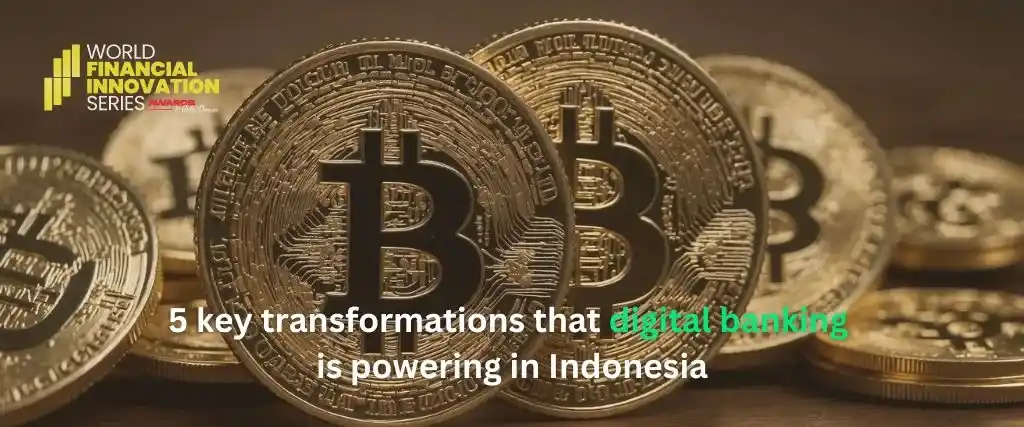5 key transformations that digital banking is powering in Indonesia

Over the past few years, Indonesia has surpassed most other countries in internet usage and the population in general has been quite adept at leveraging smartphone applications. Amidst this colossal digital shift, one domain that has benefitted the most is digital banking.
While technology adoption is just one of the factors for its growth, fintech evolution and the country’s enormous unbanked and underbanked population are the other leading factors. Not only digital banking is able to provide fast and agile services but is also very convenient and accessible for myriad other requirements. All these developments are surely giving digital banking an edge over the traditional banking system.
We will now look at the top 5 transformations that digital banking is powering in Indonesia.
1. Bridging the financial inclusion gap
Housing one of ASEAN’s largest unbanked populations comes with a host of challenges and especially when it comes to bringing financial services access to the large, underserved community. This is where digital banking with its seamless, easily accessible and mobile-first platforms is changing the whole dynamics.
As per the recent surveys, even the remotest rural areas are now thriving with digital banking penetration, thus closing the financial inclusion gap and advancing the country’s knowledge economy.
2. Making way for fast, convenient and secure payments
Digital banking has completely revolutionized payments and made it completely hassle-free. Bill payments, money transfers, foreign remittances, online shopping, and others are now happening in a few seconds from anywhere in Indonesia.
Furthermore, e-KYC, QR codes, digital wallets and secure payment gateways have taken the user experience to the next level. It is needless to say that this whole development is slowly propelling Indonesia towards a cashless and digital-first economy.
3. Enhanced financial literacy
Digital banking platforms in Indonesia are not only providing financial services but also driving efforts to improve financial literacy. Many apps come equipped with educational tools, financial planning features, and user-friendly interfaces that help customers better understand how to manage their money. This increased awareness empowers individuals to make more informed financial decisions, leading to a more financially savvy population.
4. Boost to SME growth
Small and medium enterprises (SMEs) play a crucial role in Indonesia’s economy. Digital banking has provided these businesses with greater access to capital, seamless payment systems, and financial tools tailored to their needs. With more efficient loan applications and quicker approval processes, SMEs can now access funding that helps them grow. Digital banking platforms are also enabling these businesses to tap into online marketplaces and reach more customers, driving innovation and competitiveness in the business sector.
5. Accelerated innovation in fintech
Indonesia’s thriving fintech ecosystem is closely tied to the growth of digital banking. Banks and fintech companies are collaborating to offer innovative products, such as peer-to-peer lending, robo-advisors, and blockchain-based solutions. These innovations are reshaping the financial landscape by offering alternative financing options, smarter investment tools, and cutting-edge security measures. This synergy between digital banking and fintech is positioning Indonesia as a leader in financial technology innovation in Southeast Asia.
Conclusion
Digital banking is revolutionizing Indonesia’s financial sector by making financial services more accessible, efficient, and innovative. The impacts of these transformations are not only empowering individuals and businesses but are also setting the stage for a more inclusive and competitive economy. As digital banking continues to evolve, Indonesia is poised to become a major player in the global fintech landscape.
By focusing on the unique benefits of digital banking, Indonesia is experiencing a financial revolution that is both transforming traditional banking practices and promoting financial inclusion across the country.